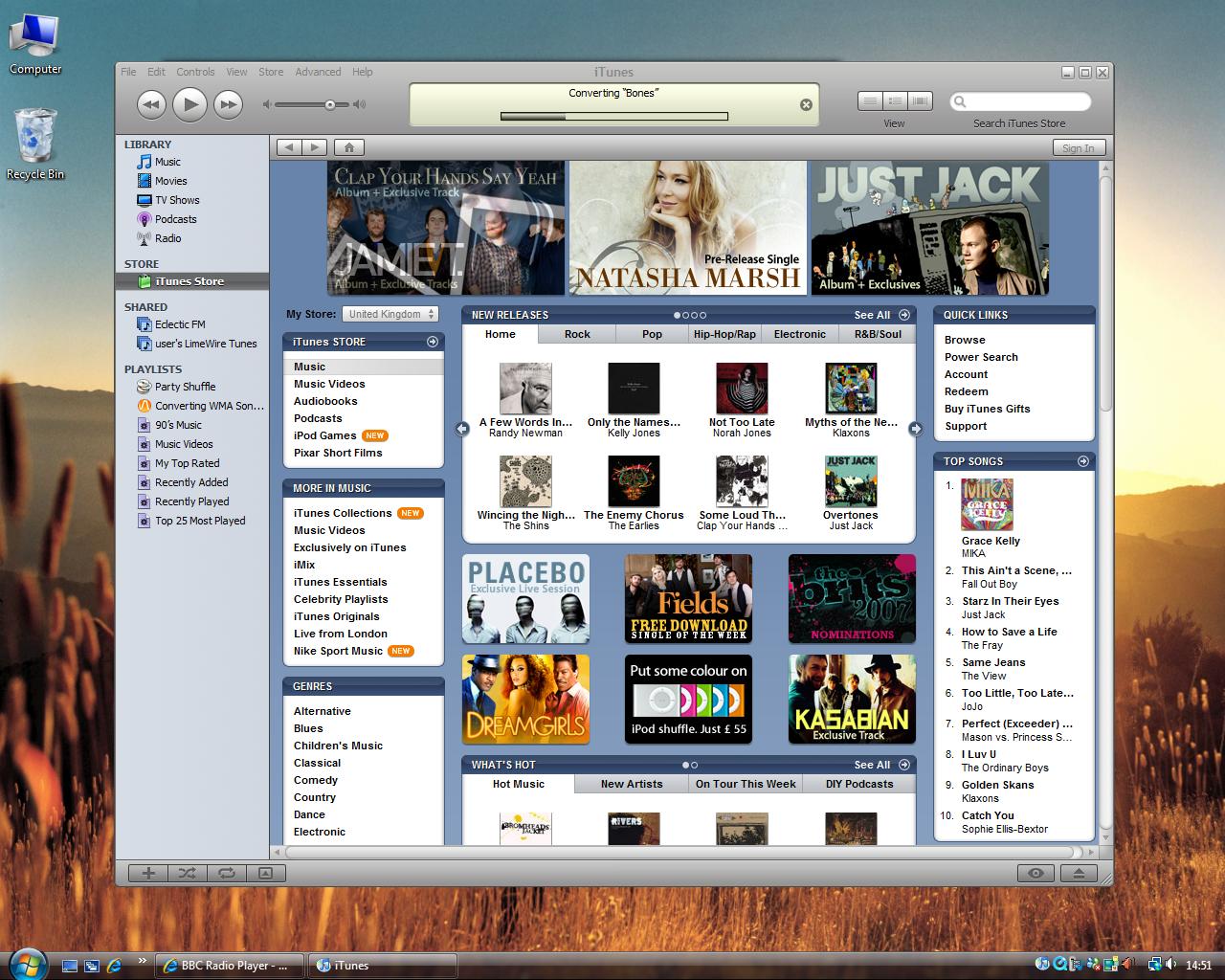iTunes vs P2P: pirates win in 2006

At 1pm today, EMI and Apple sealed a crucial deal that will see anti-piracy measures disappear from digital music downloads forever. And it looks like it's about time too.
Official DRM-laden tracks accounted for just 509 million tracks in 2006; a figure that was dwarfed by the five billion tracks downloaded through peer-to-peer (P2P) networks like Limewire . The number of US households download using legitimate services like the iTunes Store did however jump 65.8 percent to 12.6 million.
NPD , the research group that carried out the survey, said that the widespread availability of cheap storage had a big part to play in the pirates' digital gluttony.
"When I talk to people who are involved in a lot of peer to peer, they're running around with external hard drives," NPD analyst Russ Crupnick told the New York Times .
More carrot, less stick?
The news probably won't shock to Universal Music , Warner Music Group and Sony BMG who insist that DRM has to stay. They will undoubtedly cite the number of prosecutions brought against individuals and file-sharing networks by the Recording Industry Association of America ( RIAA ) to prove their point.
Unfortunately their actions could be counter-productive. By effectively criminalising music fans - its customers - from the outset, the industry may inadvertently drive many fans in the opposite direction. i.e. towards the P2P networks where they can get their music for free.
What's clever about the EMI move is that will give fans an incentive to download high quality tracks from a legitimate source and at a reasonable cost. This should help the industry meet the demands of a fast-growing section of their potential audience; while at the same time reducing the impact of the dodgy downloaders. And if that's not an incentive for the Big Three to join EMI, we don't know what is.
Sign up for breaking news, reviews, opinion, top tech deals, and more.